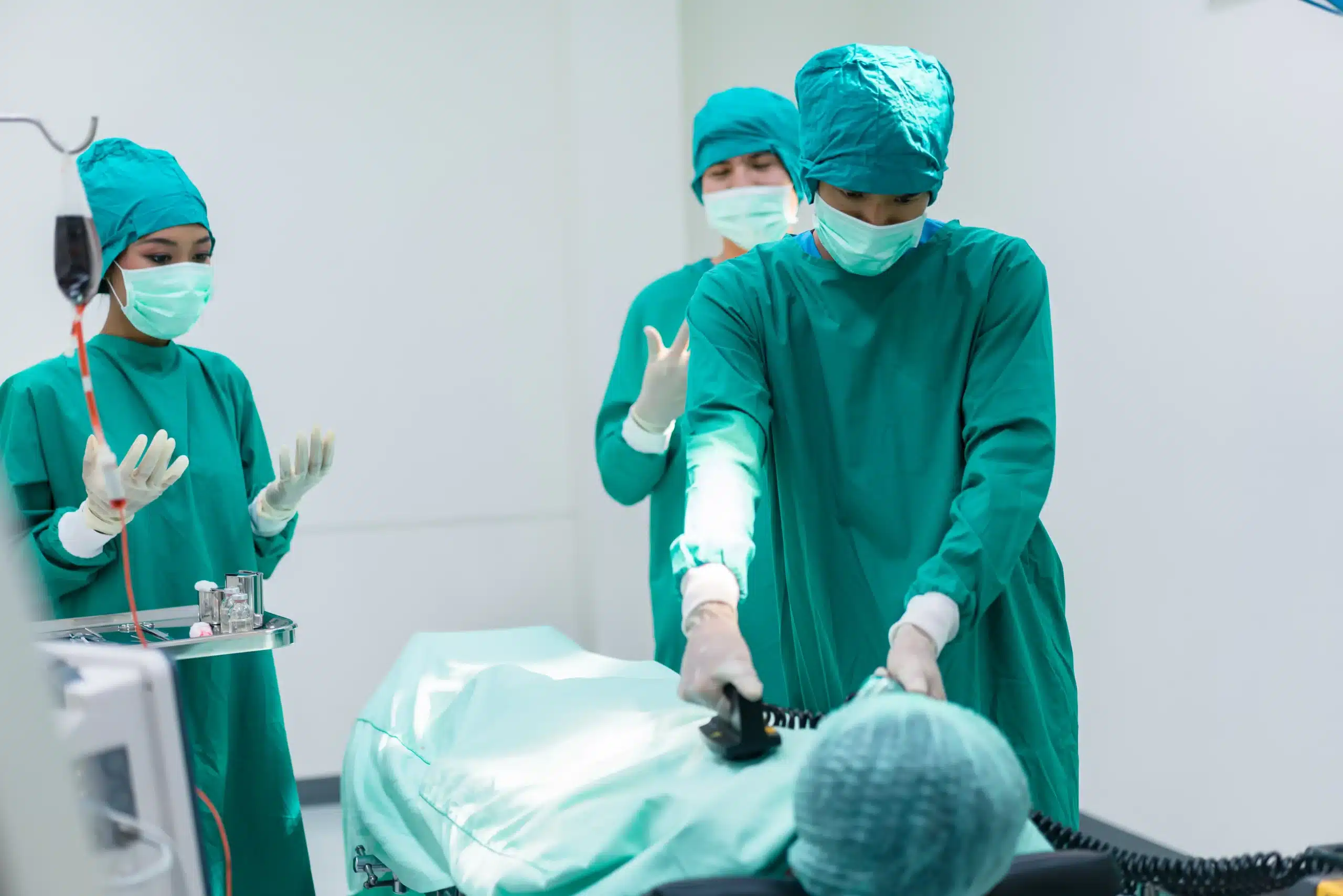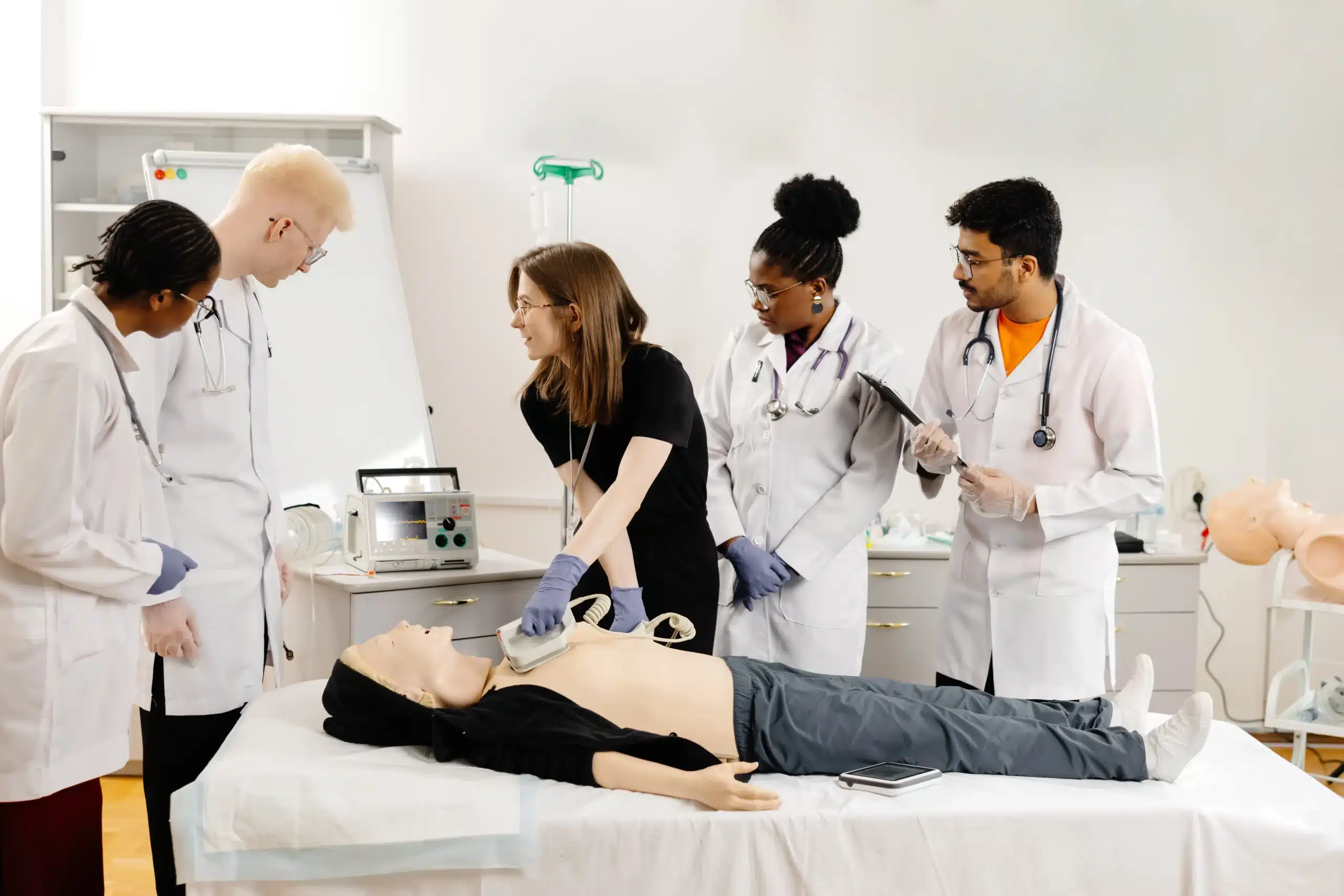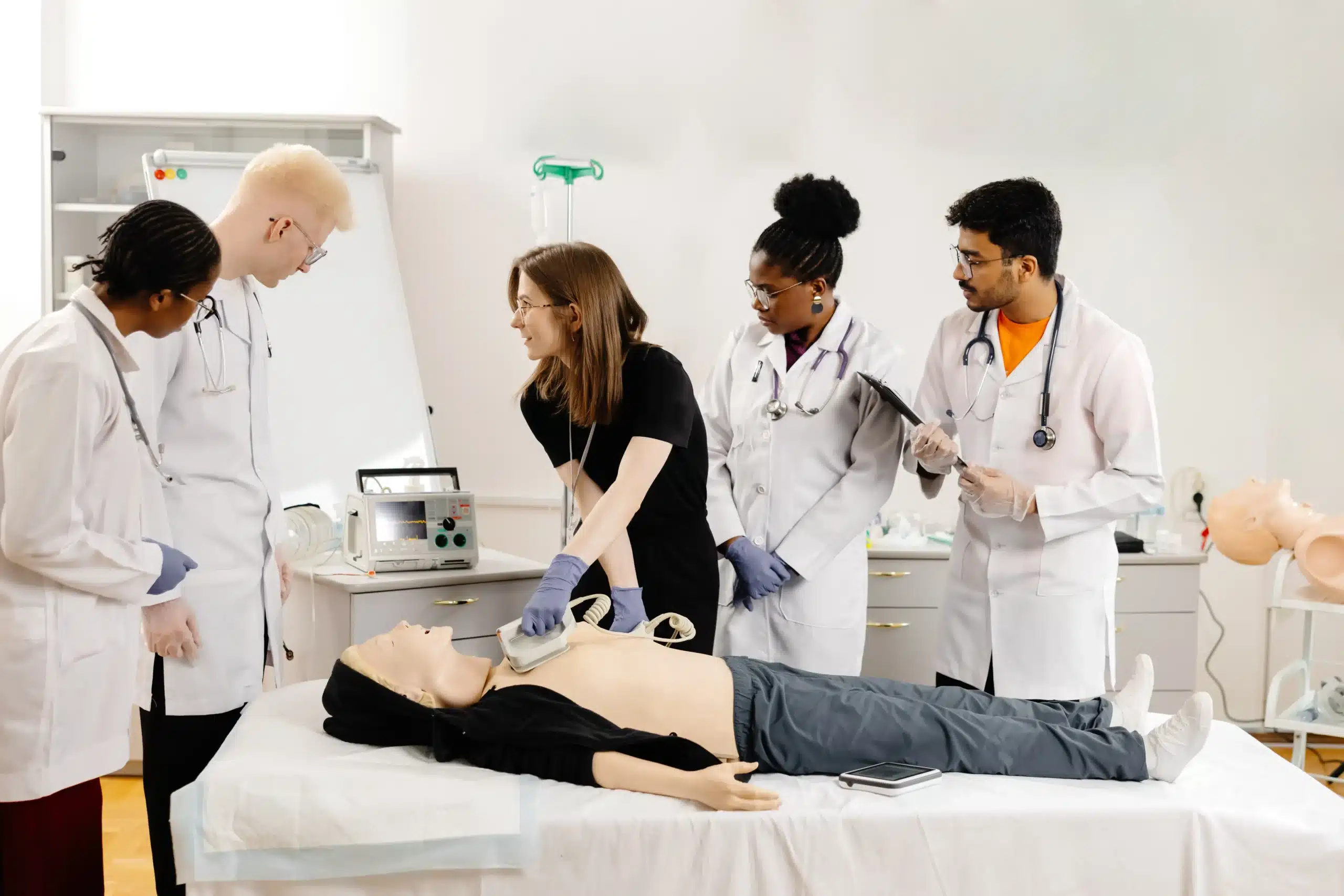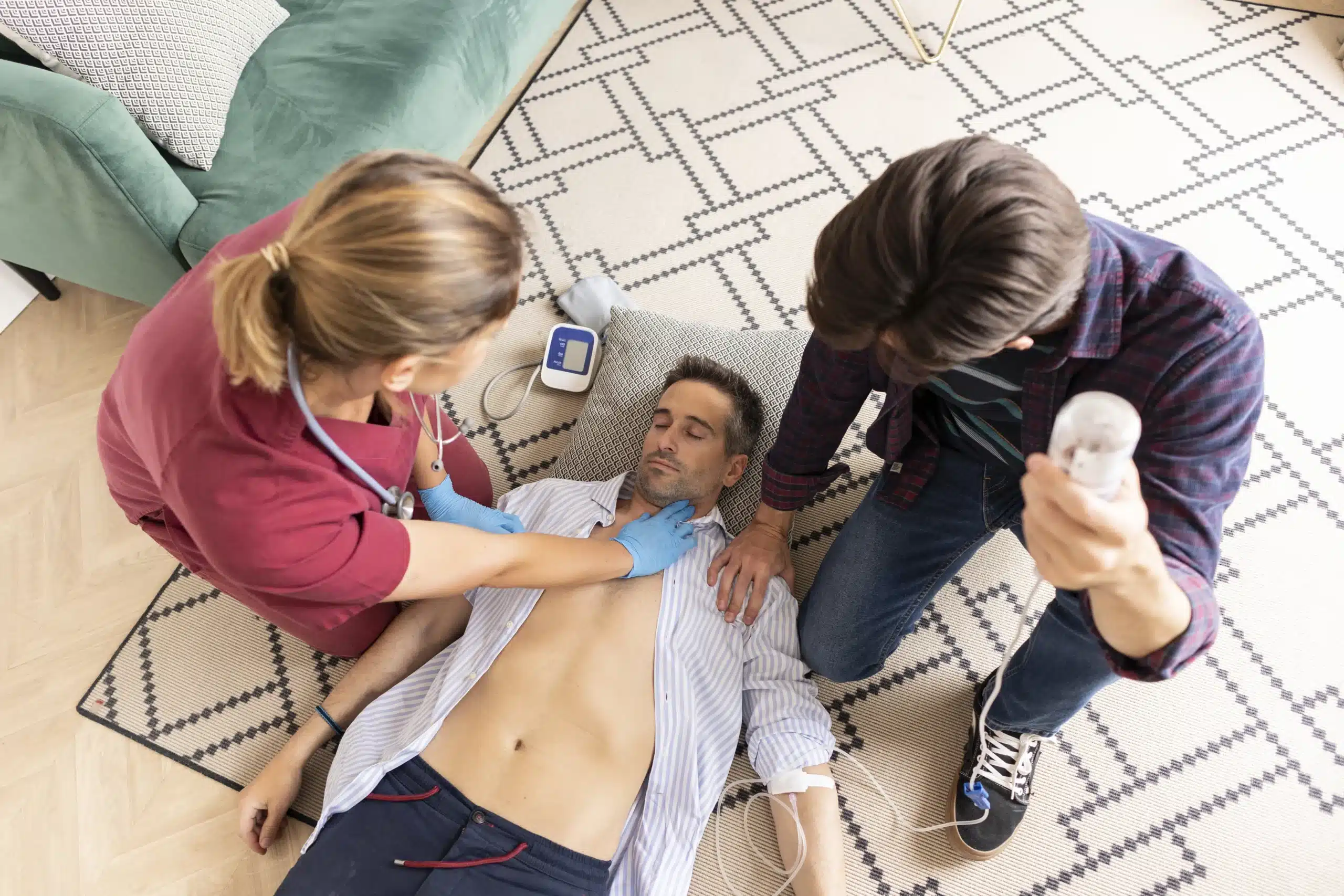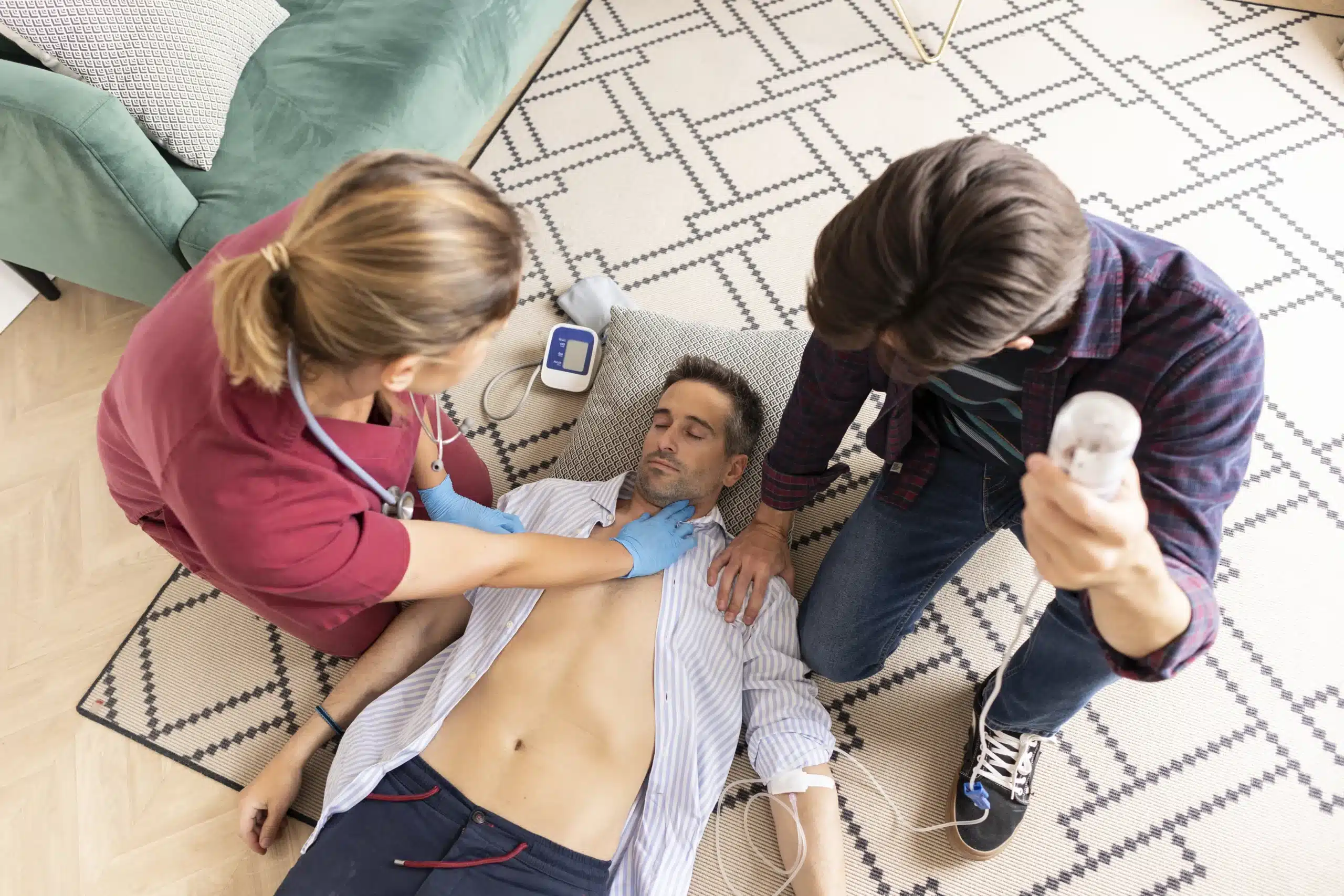Scraped knee on the playground? Minor burn in the kitchen? Unexpected emergency on a hike? Life in Fairfield is full of adventures, big and small, and being prepared for the unexpected is key. First-aid kits for Fairfield residents aren’t just a collection of bandages and antiseptic wipes; they’re a source of confidence, knowing you can handle minor injuries and provide immediate care when it matters most. This guide will walk you through building a comprehensive first-aid kit tailored to Fairfield’s unique environment and your family’s specific needs. We’ll cover essential supplies, local resources, and training opportunities to empower you to respond effectively in any situation.
Key Takeaways
- Prepare for Fairfield’s unique needs: Customize your first-aid kit with essentials like sunscreen, insect repellent, and any personal medications, considering our local climate and potential emergencies.
- Maintain your kit regularly: Check for expired items every six months and restock used supplies. Ensure everyone in your household knows where the kit is and how to use it.
- Empower yourself with knowledge: First-aid and CPR training complements your kit, giving you the skills to confidently handle emergencies. Explore local training options in Fairfield to build your preparedness.
What Goes in a Fairfield First-Aid Kit?
A well-stocked first-aid kit is essential for handling minor injuries at home, on the go, or at work. It’s a critical resource that can make all the difference in an emergency. But what exactly should you include in a first-aid kit tailored for Fairfield? Let’s break it down.
Essential Supplies
Every first-aid kit should start with a core set of supplies. Think of these as your foundational items, ready to address common injuries like cuts, scrapes, and minor burns. The Mayo Clinic recommends including a variety of bandages (think assorted sizes, shapes, and even butterfly bandages for those trickier cuts). Antiseptic wipes and solutions are key for cleaning wounds, and gloves (non-latex are a good choice) protect both you and the person you’re helping. A thermometer is important for checking for fever, and pain relievers like acetaminophen or ibuprofen can help manage discomfort. Rounding out the essentials are antibiotic ointment to prevent infection and cold packs to reduce swelling. Don’t forget tweezers and scissors for splinters or cutting bandages.
Local Additions
Beyond the basics, consider adding items specific to Fairfield. Our area experiences hot summers, so including sunscreen and insect repellent in your kit is a smart move. Given the proximity to nature trails and outdoor activities, a tick removal tool can also be helpful. Fairfield’s Community Emergency Response Team (CERT) offers free disaster preparedness training, which can help you understand how to use your first-aid kit most effectively in various situations. Consider supplementing your kit with local resources and knowledge. Organizations like Always Prepared CPR offer first-aid and CPR training, empowering you to confidently handle emergencies. Remember, a first-aid kit is most effective when paired with the knowledge of how to use it.
Customize Your Kit for Fairfield
Living in Fairfield means being prepared for anything—from heat waves and power outages to the occasional blizzard. Understanding common local emergencies helps you build a first-aid kit that truly meets your needs.
Common Local Emergencies
Fairfield’s emergency preparedness resources highlight the importance of planning for severe weather. Think blizzards, hurricanes, flooding, extreme heat, and extreme cold. Power outages and public health crises are also important considerations. Being ready for these situations means having supplies to shelter in place for at least three days.
Tailoring to Local Risks
A standard first-aid kit is a great starting point, but consider Fairfield’s specific risks when customizing yours. The Fairfield Police Department recommends a three-day supply of water (one gallon per person per day) and non-perishable food. A manual can opener, a battery-powered or hand-crank radio, a flashlight, extra batteries, and a first-aid manual are also crucial. Beyond the basics, think about personal needs like medications, personal hygiene items, and important documents. Having some extra cash on hand is always smart. Disasters are unpredictable, so proactive planning is key.
Where to Get First-Aid Kits in Fairfield
So, you’re ready to equip yourself with a first-aid kit? Great! Finding the right kit for your Fairfield home, car, or workplace is easier than you think. Let’s explore your options.
Local Stores & Online Options
You can find pre-assembled first-aid kits at many local stores in Fairfield. Check your neighborhood pharmacies, big box retailers, and sporting goods stores. For a broader selection, browse online retailers like the American Red Cross store, which offers a variety of first-aid kits for different needs. If you’re already planning on a CPR and first-aid course, Fairfield CPR Classes offers a convenient local option for picking up a kit.
Build Your Own Kit
Building your own first-aid kit allows you to customize it perfectly to your family’s needs and the specific activities you enjoy around Fairfield. A well-stocked kit, as advised by the Mayo Clinic, is crucial for handling minor injuries and emergencies. Start with a basic container and gradually add essential supplies. This approach can be more cost-effective and ensures you have exactly what you need, whether you’re hiking in Rockville Hills Regional Park or simply dealing with everyday scrapes at home.
Maintain Your First-Aid Kit
A well-stocked first-aid kit is only helpful if it’s ready when you need it. Regular maintenance ensures your supplies are up-to-date and accessible in an emergency.
Regular Checks & Replacements
Make it a habit to check your first-aid kit regularly, ideally every six months. Look for expired medications, ointments, and solutions. Replace anything past its expiration date, even if it looks fine. Also, restock any items you’ve used. It’s a good idea to mark the date of your last kit check on a label or piece of tape inside the kit. This simple step helps you stay on track with your maintenance schedule. For more tips, the Mayo Clinic offers helpful advice on stocking and maintaining first-aid kits.
Proper Storage & Access
Think carefully about where you store your first-aid kit. You’ll want it easily accessible in an emergency, but also safely out of reach of young children. A high shelf in a kitchen or bathroom cabinet is often a good choice for a home first-aid kit. Everyone should have at least two first-aid kits—one at home and one in the car. For your car kit, consider a location that’s easily reachable, perhaps under the passenger seat or in the glove compartment. If you spend a lot of time outdoors, a smaller, portable kit in your backpack is a smart addition.
First-Aid Kits for Different Fairfield Households
Every household in Fairfield has unique needs, and your first-aid kit should reflect that. Let’s look at how to tailor your kit for different family types and lifestyles.
Families with Young Children
Kids will be kids, which means bumps, scrapes, and sometimes something a bit more serious. A well-stocked first-aid kit is essential for families with young children. Beyond the basics, consider adding things like liquid pain reliever formulated for kids, a thermometer, and extra bandages in fun designs. The Mayo Clinic recommends having two first-aid kits—one at home and one in the car. Keep these kits easily accessible for adults, but safely out of reach of little hands. Childproof latches and storing kits on high shelves are smart strategies.
Seniors & Chronic Conditions
If you have seniors or family members with chronic health conditions at home, adapting your first-aid kit is essential. Consider their specific needs. Do they require specialized medications or supplies like blood glucose monitors? Include extra doses of any prescription medications they take regularly, along with clear instructions on dosages. As the Fairfield Police Department advises, preparing for the unique needs of vulnerable family members is key for emergency preparedness. This also applies to individuals with disabilities or compromised immune systems.
Outdoor Enthusiasts & Hikers
Fairfield’s proximity to hiking trails and outdoor recreation areas makes it a haven for nature lovers. If your family enjoys the outdoors, your first-aid kit needs to be ready for anything. A basic kit won’t be enough on the trail. Consider a more comprehensive kit designed for wilderness situations. Off Grid Warehouse suggests OSHA-compliant kits, which are generally well-stocked for trauma and other injuries. These kits are also a good option for larger families. Add insect repellent, sunscreen, blister treatment, and a small emergency blanket. A compact guide to wilderness first aid can also be helpful.
Use Your First-Aid Kit Effectively
Knowing what goes into a first-aid kit is the first step. Understanding how to use those supplies is crucial. A well-stocked kit can be lifesaving in many situations, from minor cuts and scrapes to more serious emergencies.
Common First-Aid Situations
Your first-aid kit should equip you to handle common injuries like minor cuts, burns, sprains, and allergic reactions. For cuts and scrapes, clean the wound thoroughly with antiseptic wipes and apply a bandage. For minor burns, cool the area with cool (not ice cold) water and cover loosely with a sterile dressing. Use the elastic bandage in your kit to compress a sprain and help reduce swelling. For more detailed instructions on handling these and other common first-aid scenarios, the Mayo Clinic offers a comprehensive guide. If someone is experiencing an allergic reaction, administer antihistamine if you have it in your kit and seek immediate medical attention. Remember, your first-aid kit helps you manage the situation until professional help arrives.
Kit vs. Professional Help
While your first-aid kit is invaluable for treating minor injuries, it’s essential to recognize its limitations. First aid focuses on immediate care, not long-term treatment. Knowing when to seek professional medical help is just as important as knowing how to use your kit. For deep wounds, severe burns, broken bones, or any situation where you’re unsure, call 911 or get to a hospital immediately. Having trained individuals in your workplace who can administer CPR and first aid can make a significant difference, stabilizing a situation until professional help arrives. Adams Safety Training highlights the importance of this preparedness. Consider investing in CPR and first-aid training—it empowers you to respond effectively in emergencies. Both the American Heart Association (AHA) and the American Red Cross (ARC) offer widely recognized certifications.
First-Aid Kits Beyond the Home
While having a well-stocked first-aid kit at home is essential, consider the other places you spend your time. Equipping your car and workplace with the right supplies ensures you’re prepared for emergencies no matter where they happen.
Car Safety Kits
Having a first-aid kit in your car is just as important as having one at home. You’re often further from medical help when on the road, and accidents can happen anytime. A car first-aid kit doesn’t need to be extensive, but it should cover the basics. A pre-assembled kit designed for minor injuries is a great starting point, often including bandages, antiseptic wipes, and gauze pads. Consider adding items specific to car emergencies, like a flashlight, emergency blanket, and a small tool kit. Keep the kit easily accessible, perhaps in the glove compartment or under a seat, but always out of reach of children.
Workplace Requirements
Maintaining a safe work environment is a top priority for any business, and having readily available first-aid resources plays a crucial role. Beyond basic supplies, consider the specific hazards of your workplace. First-aid and CPR training for your team can significantly improve responses to emergencies. For healthcare professionals in Fairfield, staying up-to-date on certifications is critical. The RQI program offers a streamlined way to maintain essential BLS, ACLS, and PALS certifications. Check with local regulations and OSHA for specific requirements for your industry and workplace size. Being prepared protects your employees and creates a safer environment for everyone.
Improve Your First-Aid Preparedness
Having a well-stocked first-aid kit is a great start, but knowing how to use it effectively during an emergency is crucial. Supplement your kit with proper training to feel confident and prepared to handle various situations.
Fairfield Training Opportunities
Fairfield offers several options to build your first-aid skills and disaster preparedness. The Fairfield Community Emergency Response Team (CERT) provides free disaster response training, covering essential skills for various emergencies. For comprehensive first-aid training, consider Always Prepared CPR in Fairfield. They offer expert-led courses designed to equip you with life-saving techniques. Fairfield CPR Classes offers a range of CPR and first-aid courses through the American Heart Association, tailored to different needs and professions. We also offer specialized training like the RQI program for healthcare providers. Contact us for information about group discounts.
Online Resources
Beyond local training, many online resources can enhance your first-aid knowledge. The American Heart Association (AHA) and the American Red Cross (ARC) offer valuable information and resources on CPR, first aid, and other emergency preparedness topics. These organizations are reputable providers of training and certifications, making them excellent resources for expanding your skillset. You can also explore online resources from providers like Fairfield CPR Classes, a woman-owned AHA Training Center offering various certification courses. We also offer a low price guarantee. Contact us to learn more.
Avoid These First-Aid Kit Mistakes
Expiration Dates
It’s easy to stash a first-aid kit in a cabinet and forget about it. But medications and supplies do expire, becoming less effective over time. Expired antiseptic wipes might not prevent infection, and outdated pain relievers could be less potent. Regularly check those expiration dates and replace anything past its prime. Mark the date of your last kit check on the outside—a helpful reminder for your next review. As the Mayo Clinic advises, a current kit is crucial for it to truly be life-saving.
Kit Customization
Pre-made first-aid kits are handy, but they may not cover all your needs. Consider your lifestyle, any health conditions you or your family members have, and potential hazards in your environment. Do you have kids prone to scrapes? Do you hike near poison oak? Customizing a kit, or adding to a pre-made one, lets you tailor it to your life. If you’re a hiker around Fairfield, consider adding blister treatment, insect repellent, and tweezers for splinters. The right first-aid training can also inform your kit choices. A personalized kit ensures you’re ready for anything.
Fairfield Community First-Aid Resources
Knowing how to use your first-aid kit is essential, but sometimes professional help is necessary. Familiarize yourself with these local resources to be prepared for emergencies in Fairfield.
Local Emergency Services
The Fairfield Community Emergency Response Team (CERT) plays a vital role in preparing our community for disasters. They offer free disaster response preparedness training, covering essential skills for various emergency situations. This training equips residents to respond effectively during crises, making our community more resilient.
Community Health & Support
Fairfield offers several options for residents seeking to improve their first-aid knowledge. Always Prepared CPR provides expert-led first-aid training, giving individuals the skills to make a real difference in emergencies. For a broader range of courses, including specialized training like the RQI program for healthcare providers, Fairfield CPR Classes offers various options tailored to different professions and community needs. They also provide the RQI program for healthcare professionals needing certification. For those seeking American Heart Association courses, including BLS, ACLS, PALS, CPR, and First Aid, Safety Training Seminars is another excellent local resource. These combined resources ensure that Fairfield residents have access to comprehensive first-aid education and training.
Related Articles
- First-Aid Certification Courses in Vacaville, CA – Fairfield CPR Classes
- Find First-Aid Classes Near Me: Your Simple Guide – Fairfield CPR Classes
- CPR Training in Fairfield: Your Guide to Life-Saving Skills – Fairfield CPR Classes
- First Aid Training in Fairfield: Your Guide – Fairfield CPR Classes
- Pediatric CPR & First Aid Classes in Fairfield – Fairfield CPR Classes
Frequently Asked Questions
Where can I get a first-aid kit in Fairfield? You can find first-aid kits at local pharmacies, big box retailers, and sporting goods stores. Online retailers like the American Red Cross store also offer a wide selection. Alternatively, you can create a personalized kit by purchasing supplies individually. Fairfield CPR Classes is a convenient local option if you’re already taking a CPR and first-aid course with them.
What kind of first-aid training is available in Fairfield? Fairfield offers various first-aid and emergency preparedness training options. The Fairfield Community Emergency Response Team (CERT) provides free disaster preparedness training. Always Prepared CPR offers comprehensive first-aid courses. Fairfield CPR Classes offers CPR and first-aid certification courses through the American Heart Association, including specialized training like the RQI program for healthcare providers. Online resources from the American Heart Association and the American Red Cross can supplement your learning.
How often should I check my first-aid kit? Check your first-aid kit every six months. Look for expired medications, ointments, and solutions, replacing anything past its expiration date. Restock any used items. Mark the date of your last check on the kit to help you stay on schedule.
What should I include in a first-aid kit specifically for Fairfield? Start with standard first-aid supplies like bandages, antiseptic wipes, gloves, pain relievers, antibiotic ointment, and a cold pack. Given Fairfield’s climate and outdoor activities, add sunscreen, insect repellent, and a tick removal tool. Consider additional supplies for local emergencies like severe weather and power outages, such as a three-day supply of water and non-perishable food, a manual can opener, a radio, a flashlight, extra batteries, and any personal medications.
How do I tailor a first-aid kit for my family’s specific needs? Consider your family’s age, health conditions, and lifestyle. Families with young children should include child-friendly pain relievers and fun bandages. For seniors or those with chronic conditions, add extra medications and specific medical supplies. Outdoor enthusiasts should pack blister treatment, insect repellent, and a wilderness first-aid guide. Customize your kit to ensure it meets your unique needs.
